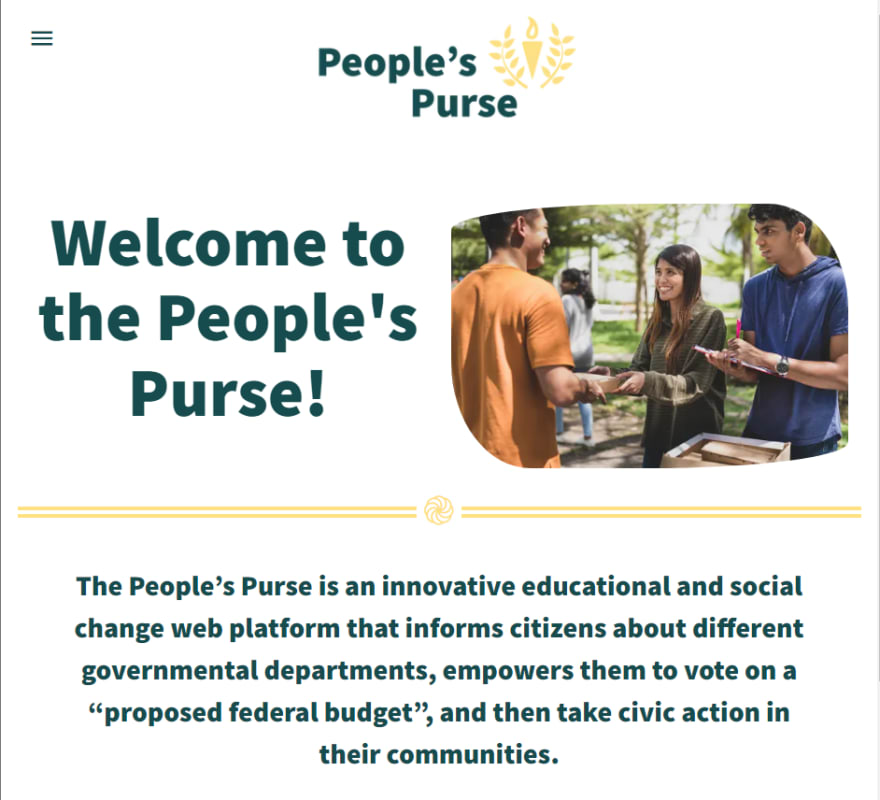Submission Category
Computing Captains
The Project
The People's Purse is an educational and social change platform that aims to inform citizens about different governmental departments and the elected officials who represent them. The inspiration from the project stems from the idea of Participatory Budgeting, or PB, a concept that was invented in Brazil in 1989, and singled out as a best practice by both the World Bank and United Nations.
PB comprises of three steps:
1. Citizens identify community needs for funding
2. Citizens then work with elected officials to craft budgetary proposals to meet these needs
3. Citizens are then able to vote on where and how public funds are spent
The project is live and free to use at People's Purse
The current iteration aims to be used as an educational tool in middle and high school level classrooms and is accompanied by a curriculum and lesson planning component.

Take some time to poke around the website and let us know how/if it can be improved.
The Tech Stack
Next.js, React.js, TypeScript, React Charts.js, GraphQL, MongoDB, CosmosDB API, Azure Web Apps, Apollo Client, Material UI, Azure Private Endpoint, Google Civic Info API
Functionality / Detailed Description
- The web application serves as a jumping off point for research of citizen's elected officials and departments that are federally funded. The aforementioned is accessed via the elected official and department information pages, which can both be used without signing up.
- Once a user has signed up, or logged in, the ability to join classes, record and research local volunteer opportunities, or record civic actions is unlocked.
- Users with accounts can also vote on a mock federal budget using our system's predetermined "Budget Points".
- Mock budgets must be perfectly balanced, neither over nor under spend all 100 budget points. The user is thus forced to evaluate funding their interested while staying within the constraints of a balanced budget.
- Once the User has voted, they’re able to view the aggregate average of all mock budgets across the application.
There are some slight differences in application functionality depending on the user's status (educator or learner), which is determined via backend database coding.
Educators
- Create Classes
- View learner actions
- Monitor mock budgets created in their classes
Learners
- Craft Budgets
- Join Classes
- Record Civic Actions
Link to Code on GitHub
Link to GitHub Repository
The repository is open source and free to use, licensed under the Apache-2 License.



Top comments (1)